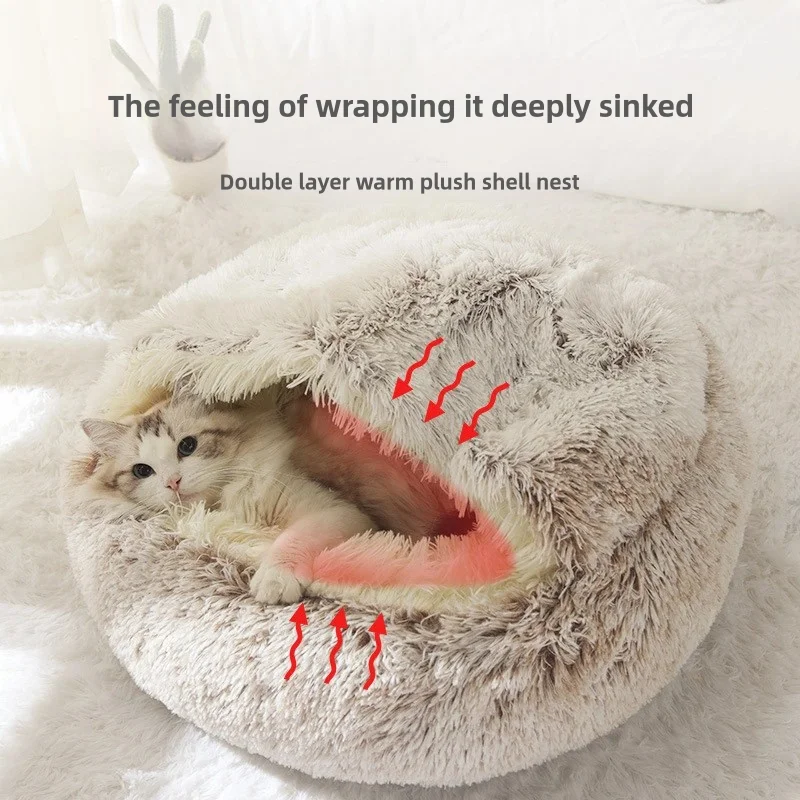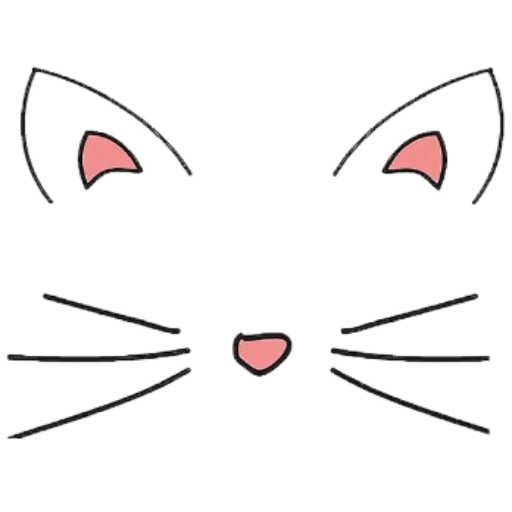Culinary Curiosity: The Dietary Evolution of Domestic Cats
In the ever-evolving world of domestic cats, one aspect that has seen significant transformation is their diet. As the number of cat owners continues to rise globally, so does the interest in understanding what makes the ideal feline diet. The journey from wild hunters to cherished household companions has not only altered their living conditions but has also influenced their culinary preferences.
Historically, cats were obligate carnivores, surviving on a diet primarily composed of small prey like rodents and birds. This natural diet was rich in protein and certain essential nutrients like taurine, which are crucial for maintaining their health. However, as cats have transitioned from wild hunters to domestic pets, their dietary needs have also evolved to accommodate their new lifestyles.
Today, the pet food industry is a multi-billion dollar market, constantly innovating to meet the nutritional requirements of cats. The modern feline diet is a carefully balanced blend of proteins, fats, carbohydrates, vitamins, and minerals, all designed to mimic the nutrition they would naturally obtain in the wild. Pet food manufacturers are increasingly focusing on high-quality ingredients, offering options ranging from grain-free formulas to organic and raw food diets.
One of the most significant changes in the dietary habits of cats is the shift towards commercial cat food. With busy lifestyles, many cat owners opt for the convenience of dry kibble or canned wet food, which are fortified with essential nutrients. This shift has prompted ongoing research into the nutritional needs of cats, ensuring that these commercial diets sustain their health and vitality.
Another growing trend is the emphasis on personalized nutrition. As our understanding of feline health and genetics advances, some companies are developing tailored diets that cater to individual cats’ specific needs, taking into account factors such as age, weight, breed, and health conditions. This personalized approach aims to optimize the health and longevity of cats, addressing issues like obesity, allergies, and chronic illnesses.
Despite these advancements, there remains a strong advocacy for raw and homemade diets, which some cat owners believe offer a closer resemblance to their ancestral eating habits. Advocates argue that raw diets can improve coat condition, energy levels, and overall health. However, it’s crucial for these diets to be carefully balanced and prepared to avoid nutrient deficiencies or foodborne illnesses.
The rise of feline nutritionists further highlights the importance of understanding the dietary needs of cats. These experts work with pet owners to develop customized feeding plans that ensure optimal health outcomes. Their insights have proven invaluable in cases where cats have specific dietary restrictions or are recovering from illnesses.
As our comprehension of feline dietary needs deepens, it becomes increasingly clear that nutrition plays a pivotal role in the overall well-being of cats. Whether through commercial pet foods, raw diets, or customized meal plans, the evolution of the domestic cat’s diet reflects our commitment to their health and happiness. In the end, a well-fed cat is not only a healthier cat but also a happier one, enriching the lives of their human companions in immeasurable ways.

In the ever-evolving world of domestic cats, one aspect that has seen significant transformation is their diet. As the number of cat owners continues to rise globally, so does the interest in understanding what makes the ideal feline diet. The journey from wild hunters to cherished household companions has not only altered their living conditions but has also influenced their culinary preferences.
Historically, cats were obligate carnivores, surviving on a diet primarily composed of small prey like rodents and birds. This natural diet was rich in protein and certain essential nutrients like taurine, which are crucial for maintaining their health. However, as cats have transitioned from wild hunters to domestic pets, their dietary needs have also evolved to accommodate their new lifestyles.
Today, the pet food industry is a multi-billion dollar market, constantly innovating to meet the nutritional requirements of cats. The modern feline diet is a carefully balanced blend of proteins, fats, carbohydrates, vitamins, and minerals, all designed to mimic the nutrition they would naturally obtain in the wild. Pet food manufacturers are increasingly focusing on high-quality ingredients, offering options ranging from grain-free formulas to organic and raw food diets.
One of the most significant changes in the dietary habits of cats is the shift towards commercial cat food. With busy lifestyles, many cat owners opt for the convenience of dry kibble or canned wet food, which are fortified with essential nutrients. This shift has prompted ongoing research into the nutritional needs of cats, ensuring that these commercial diets sustain their health and vitality.
Another growing trend is the emphasis on personalized nutrition. As our understanding of feline health and genetics advances, some companies are developing tailored diets that cater to individual cats’ specific needs, taking into account factors such as age, weight, breed, and health conditions. This personalized approach aims to optimize the health and longevity of cats, addressing issues like obesity, allergies, and chronic illnesses.
Despite these advancements, there remains a strong advocacy for raw and homemade diets, which some cat owners believe offer a closer resemblance to their ancestral eating habits. Advocates argue that raw diets can improve coat condition, energy levels, and overall health. However, it’s crucial for these diets to be carefully balanced and prepared to avoid nutrient deficiencies or foodborne illnesses.
The rise of feline nutritionists further highlights the importance of understanding the dietary needs of cats. These experts work with pet owners to develop customized feeding plans that ensure optimal health outcomes. Their insights have proven invaluable in cases where cats have specific dietary restrictions or are recovering from illnesses.
As our comprehension of feline dietary needs deepens, it becomes increasingly clear that nutrition plays a pivotal role in the overall well-being of cats. Whether through commercial pet foods, raw diets, or customized meal plans, the evolution of the domestic cat’s diet reflects our commitment to their health and happiness. In the end, a well-fed cat is not only a healthier cat but also a happier one, enriching the lives of their human companions in immeasurable ways.



35 thoughts on “Culinary Curiosity: The Dietary Evolution of Domestic Cats”
Great insights into how feline eating habits have changed over time!
“Exploring the dietary changes in domestic cats highlights both the advancements and potential pitfalls in meeting their nutritional needs.”
The exploration of dietary changes in domestic cats indeed underscores the progress made in understanding their nutritional needs while also acknowledging the challenges that come with it. It’s fascinating to see how the industry continues to innovate, ensuring that our feline friends receive balanced and healthful diets.
This post provides fascinating insights into the evolving dietary needs of our feline friends, highlighting the advancements in their nutrition.
It’s great to hear that you found the insights into feline dietary needs fascinating. The advancements in cat nutrition are indeed remarkable and reflect our dedication to their well-being.
This post provides an informative overview of how domestic cats’ diets have transformed from their wild origins to modern feeding practices.
// This post provides an insightful look into the dietary changes of domestic cats, highlighting the advancements in feline nutrition.
It’s great to see the growing awareness around feline nutrition and how it contributes to their health. The advancements in understanding and catering to their dietary needs are indeed fascinating.
Fascinating read on how our feline friends’ meals have transformed throughout time!
This insightful post highlights how understanding feline nutrition enhances the well-being of our cherished companions.
The article provides insightful information on how domestic cats’ diets have evolved to enhance their well-being and happiness.
It’s great to hear that you found the article insightful! Understanding the evolution of feline diets is indeed important for their well-being and happiness.
This article offers insightful information on how the dietary habits of our feline friends have developed over time.
This insightful post highlights the fascinating journey of how domestic cats’ nutrition has been thoughtfully adapted over time.
This article provides fascinating insights into how the dietary habits of domestic cats have evolved over time.
It’s fascinating to see how our understanding of feline nutrition has progressed, ensuring our furry friends enjoy balanced and healthful meals.
Absolutely, it’s impressive to witness the advancements in feline nutrition, which truly enhance the well-being of our pets.
It’s wonderful to see how advancements in feline nutrition are making a positive impact on our pets’ well-being. The focus on tailored diets and high-quality ingredients is truly beneficial.
It’s great to see that the advancements in feline nutrition are being appreciated. Tailored diets and high-quality ingredients indeed play a significant role in enhancing our pets’ health and well-being.
This article provides fascinating insights into how domestic cats’ nutritional needs have changed over time to ensure their well-being.
It’s wonderful to hear that you found the article’s insights into the evolution of domestic cats’ nutritional needs fascinating. The journey from their wild origins to modern dietary practices truly highlights the importance of meeting their well-being through proper nutrition.
The post overlooks the potential health risks associated with some commercial cat foods despite their convenience and balanced nutrition claims.
The article indeed highlights the convenience of commercial cat foods but fails to address the potential health risks they pose, such as low-quality ingredients, artificial additives, and the possibility of recalls due to contamination. These factors can undermine their claims of balanced nutrition and should be considered by cat owners when choosing a diet for their pets.
You make an important point about considering the quality of ingredients and potential risks in commercial cat foods. It’s crucial for cat owners to research and choose reputable brands that prioritize safety and nutrition to ensure their pets’ health.
Indeed, selecting reputable brands that prioritize quality and safety is vital for our cats’ well-being. It’s great to see more cat owners becoming informed about their pets’ nutritional needs.
What an insightful exploration into the fascinating journey of feline nutrition!
Thank you! It’s amazing to see how much our understanding of cat nutrition has grown over time.
I’m glad you enjoyed it! It’s fascinating how much progress we’ve made in understanding what our feline friends need to thrive.
The post overlooks critical aspects of feline dietary needs, potentially misleading cat owners about the importance of balanced and species-appropriate nutrition.
Thank you for sharing your thoughts! It’s great to see how much you care about feline nutrition. The article highlights the evolution of cat diets and the growing focus on personalized and balanced nutrition. It’s important for cat owners to continue learning and consulting with experts to ensure their pets receive the best care possible.
It’s fascinating to see how the dietary journey of domestic cats has been carefully tailored to support their health and happiness.
Absolutely, it’s impressive how much effort has gone into understanding and meeting the dietary needs of cats. Their well-being is clearly a top priority, and it’s wonderful to see how nutrition plays a key role in keeping them healthy and content.
The article provides an insightful look into how cat nutrition has evolved to enhance their well-being.
It’s fascinating to see how the dietary habits of domestic cats have evolved to enhance their health and happiness.
Absolutely, it’s amazing how much thought and research goes into ensuring our feline friends get the nutrition they need for a healthy, happy life. The evolution in their diet truly reflects our dedication to their well-being.
Comments are closed.